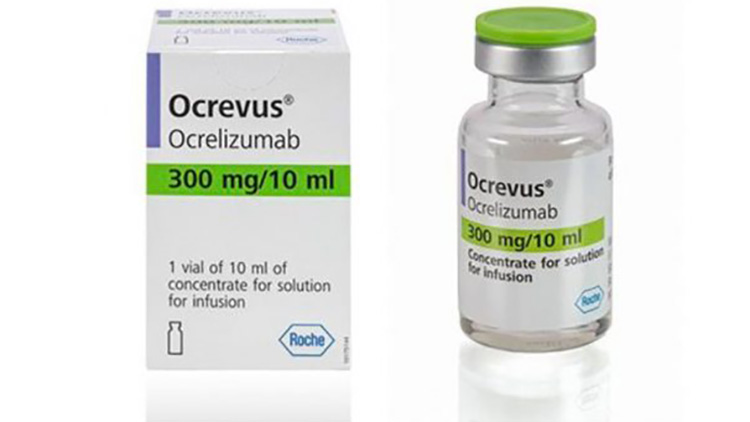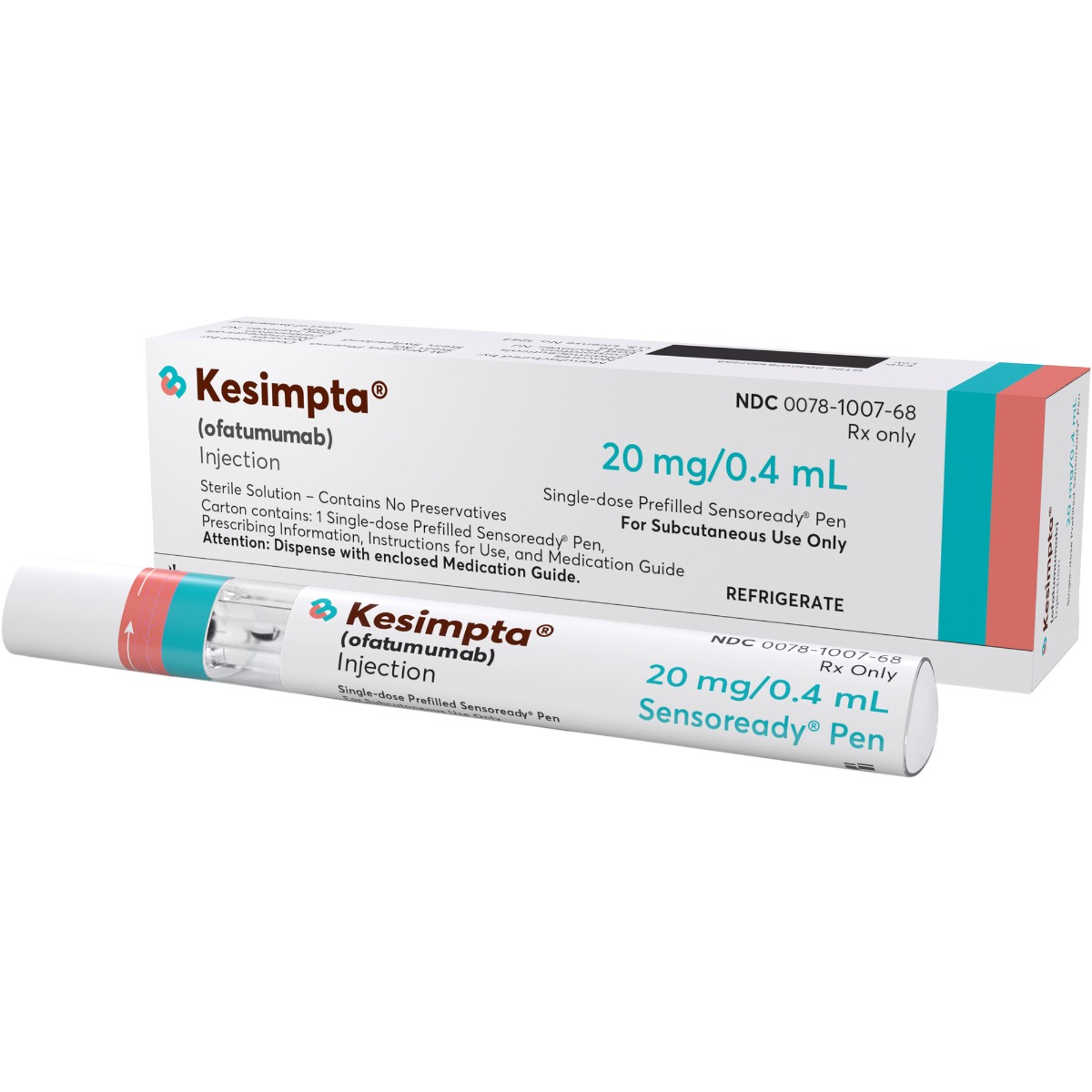Ocrevus (ocrelizumab) vs Kesimpta (ofatumumab)
Ocrevus (ocrelizumab) vs Kesimpta (ofatumumab)
Ocrevus (ocrelizumab) and Kesimpta (ofatumumab) are both monoclonal antibodies used to treat multiple sclerosis (MS), but they differ in their dosing schedules and mechanisms of action. Ocrevus is administered as an intravenous infusion every six months after the initial doses, and it targets CD20-positive B cells, which are thought to play a role in the pathological processes of MS. Kesimpta, on the other hand, is a subcutaneous injection that patients can administer themselves once a month after the initial loading doses, and it also targets CD20-positive B cells, but with a different molecular structure and binding affinity. When deciding between the two, patients should consider factors such as their preference for administration method, their response to previous treatments, and their overall health profile, in consultation with their healthcare provider.
Difference between Ocrevus and Kesimpta
| Metric | Ocrevus (ocrelizumab) | Kesimpta (ofatumumab) |
|---|---|---|
| Generic name | Ocrelizumab | Ofatumumab |
| Indications | Primary progressive multiple sclerosis (PPMS), Relapsing forms of multiple sclerosis (RMS) | Relapsing forms of multiple sclerosis (RMS), including clinically isolated syndrome, relapsing-remitting disease, and active secondary progressive disease |
| Mechanism of action | CD20-directed cytolytic antibody | CD20-directed cytolytic antibody |
| Brand names | Ocrevus | Kesimpta |
| Administrative route | Intravenous infusion | Subcutaneous injection |
| Side effects | Infusion reactions, infections, skin reactions, lower respiratory tract infections, etc. | Upper respiratory tract infections, headache, injection-related reactions, local injection site reactions, etc. |
| Contraindications | Active hepatitis B virus infection, known hypersensitivity to ocrelizumab or any of its components | Active hepatitis B virus infection, known hypersensitivity to ofatumumab or any of its components |
| Drug class | CD20-directed monoclonal antibody | CD20-directed monoclonal antibody |
| Manufacturer | Genentech, Inc. | Novartis Pharmaceuticals Corporation |
Efficacy
Ocrevus (Ocrelizumab) Efficacy in Multiple Sclerosis
Ocrevus (ocrelizumab) is a monoclonal antibody designed to target CD20-positive B cells, which are believed to play a key role in the pathogenesis of multiple sclerosis (MS). The efficacy of Ocrevus for the treatment of MS has been demonstrated in several key clinical trials, including the OPERA I and OPERA II studies for relapsing forms of MS, and the ORATORIO study for primary progressive MS (PPMS). In these trials, Ocrevus has been shown to significantly reduce the relapse rate in patients with relapsing MS compared to interferon beta-1a, a standard therapy. Additionally, in the ORATORIO trial, Ocrevus was the first therapy to show a reduction in disease progression in PPMS, which is a form of MS that previously had limited treatment options.
The OPERA studies showed that Ocrevus reduced the annualized relapse rate by approximately 50% compared to interferon beta-1a over a two-year period. Furthermore, Ocrevus treatment resulted in a significant reduction in the number of new or enlarging brain lesions detected on MRI scans, which is an important indicator of disease activity in MS. In the ORATORIO study, Ocrevus slowed the progression of disability by 24% compared to placebo over a period of at least 120 weeks.
Kesimpta (Ofatumumab) Efficacy in Multiple Sclerosis
Kesimpta (ofatumumab) is another monoclonal antibody targeting CD20-positive B cells and is used in the treatment of relapsing forms of multiple sclerosis, which include clinically isolated syndrome, relapsing-remitting MS, and active secondary progressive MS. The efficacy of Kesimpta has been evaluated in the ASCLEPIOS I and II phase III trials, where it was compared to teriflunomide, another MS medication. Kesimpta demonstrated a significant reduction in the annualized relapse rate, which was approximately 50% lower than that observed with teriflunomide.
In addition to the reduction in relapse rates, Kesimpta showed a significant decrease in the number of new or enlarging brain lesions on MRI. The medication also demonstrated a favorable impact on slowing the progression of disability. The convenience of Kesimpta's dosing regimen, which is a once-monthly self-administered subcutaneous injection after initial loading doses, may also contribute to its positive reception among patients and healthcare providers.
Regulatory Agency Approvals
Ocrevus
-
European Medical Agency (EMA), European Union

-
Food and Drug Administration (FDA), USA

-
Health Canada

-
Therapeutic Goods Administration (TGA), Australia

-
Medsafe (NZ)

Kesimpta
-
European Medical Agency (EMA), European Union

-
Food and Drug Administration (FDA), USA

Access Ocrevus or Kesimpta today
If Ocrevus or Kesimpta are not approved or available in your country (e.g. due to supply issues), you can access them via Everyone.org.
How it works

Make an enquiry
Choose the medicine you want to buy, answer a couple of questions, and upload your prescription to speed things up. We’ll get back to you within 24 hours.


Make an enquiry
Choose the medicine you want to buy, answer a couple of questions, and upload your prescription to speed things up. We’ll get back to you within 24 hours.


Breeze through the paperwork
We'll guide you through the required documents for importing unapproved medicine, ensuring you have all the necessary information.


Get a personalized quote
We’ll prepare a quote for you, including medicine costs and any shipping, administrative, or import fees that may apply.


Receive your medicine
Accept the quote and we’ll handle the rest - sourcing and safely delivering your medicine.

Some text on this page has been automatically generated. Speak to your physician before you start a new treatment or medication.
Let's talk
If you have any questions, call us or send us a message through WhatsApp or email:
Contact us




